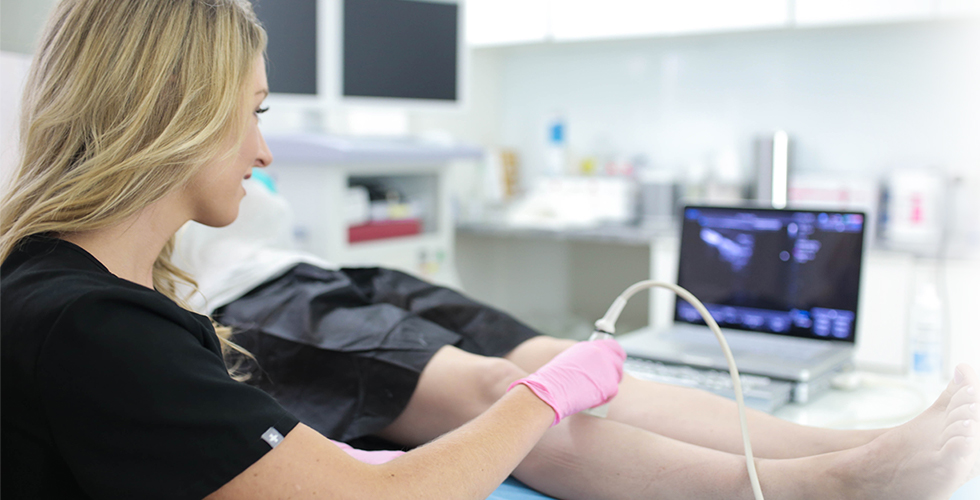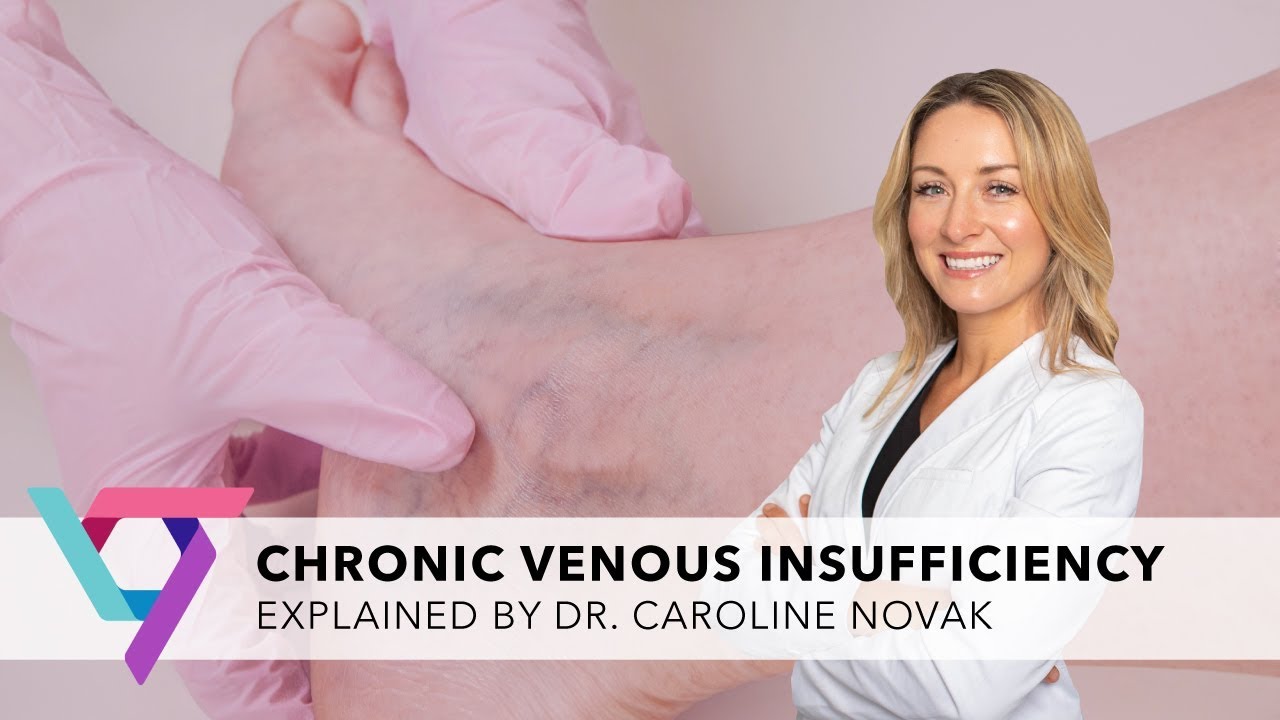Risk Factors for Chronic Venous Insufficiency
Are you suffering from heaviness in your legs? Have you been getting frequent leg cramps or have your legs been very restless of late? Do these symptoms get worse at the end of the day or after sitting or standing for long periods of time? Can you see thin wispy clusters of blood vessels on the surface of your skin?
If you have answered ‘yes’ to any of the former questions, it’s quite possible that you’re suffering from a dangerous vein disease called chronic venous insufficiency. This is an extremely dangerous disorder in which the vein valves — usually responsible for ensuring smooth blood flow from the limbs to the heart — malfunctions. When the valves fail, blood flows back down due to the force of gravity and pools around the legs.
If you are suffering from vein disease, your symptoms will usually flair up at the end of the day or after long periods of sitting or standing still. That’s because more blood accumulates in your legs over the course of the day or if your muscles are inactive, leading to sensations of heaviness and fatigue.
If left untreated, chronic venous insufficiency can have devastating consequences such as the formation of varicose veins, profuse bleeding upon the slightest of scratches, formation of non-healing or slow-healing wounds called ulcers, skin infections, and the formation of blood clots in the veins.
If you do have vein disease, it’s incredibly important to seek treatment at a reputable vein treatment clinic NY as soon as possible because it progresses rapidly. In this article, we discuss the top risk factors for chronic venous insufficiency. If you identify with any of these risk factors, you should take all necessary precautions to try and avoid vein disease.

Genetics
Genetics is the primary risk factor for chronic venous insufficiency. People are 90% likely to be inflicted with vein disease if both their parents have or have had varicose veins. There are a number of different genetic traits that can predispose you to venous insufficiency such as collagen presence, structural components of the veins, and differences in blood vessel development. Based on these factors, genetics is the primary risk factor for venous insufficiency.
Biological Sex
Biological sex is a major risk factor for vein disease. Women are 50% likely to get vein disease for a number of reasons. Estrogen and progesterone, for example, lead to vein wall relaxation, which can make the vein valves ineffective. Fat deposition in women also plays a role in increasing the likelihood of vein disease. In comparison, only 30% of all men suffer from vein disease.
Pregnancy
Several physiological changes during pregnancy increase your likelihood of vein disease. Female hormones increase drastically, leading to vein wall relaxation. The total volume of blood in the body also increases, which leads to vein dilation. The uterus may also apply pressure on the vein walls, leading to external compression. All of these factors make you extremely likely to get spider veins and varicose veins during pregnancy.

Obesity
Obesity places great pressure on the veins and also increases estrogen level, both of which increase your likelihood of suffering from vein disease. However, being slightly overweight isn’t an issue — obesity is.
Age
As you grow older, your veins naturally grow weaker, which increases their likelihood of valvular reflux, which leads to chronic venous insufficiency.
Medical History
Have you suffered from deep vein thrombosis in the past? This is a medical condition in which blood clots form inside your veins. If so, you are at high risk of vein disease as blood clots can damage and weaken the vein valves, making them more likely to malfunction. A history of deep vein thrombosis puts you at risk of severe vein disease in the deep veins, which is difficult to treat.
Occupation
Does your occupation involve sitting or standing still for long periods of time? This may include desk jobs, driving, nursing, teaching, etc. If so, you’re at risk of venous insufficiency because being sedentary increases the potential for blood accumulation in the legs.
How to Prevent Chronic Venous Insufficiency?
If you’re predisposed to chronic venous insufficiency because of one of the aforementioned risk factors, there’s no sure shot way to avoid it. However, you can lower your risk of venous insufficiency through some simple lifestyle changes:
- Physical Exercise: Engage in cardio exercises that work your calf muscles, such as running, swimming, and yoga. These exercises lead to muscle contractions, which helps facilitate blood circulation to the heart.
- Elevate your Legs: If you have a desk job, then try to keep your legs elevated on some flat surface. This will encourage blood circulation to the heart.
- Move Around Often: Don’t stand still for long periods of time. Even if you’re working, take short 5-minute breaks to move around and work your legs.
- Compression Stockings: Wear custom-fitted compression stockings that apply pressure on your blood vessels and facilitate blood flow.
The aforementioned tips can only lower your risk of vein disease, not eliminate the possibility completely. As such, if you notice any of the initial signs and symptoms of venous insufficiency — heavy legs, cramps, restless legs, spider veins, etc — then please consult your nearest reputable vein treatment clinic. A good board-certified vein doctor will study your symptoms and run a duplex ultrasound test to diagnose the vein disease, following which they’ll treat it using minimally invasive procedures that cause minimal pain or discomfort.








